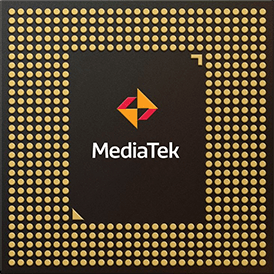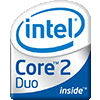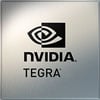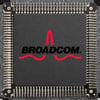
MediaTek Helio X27 Benchmark, Test and specs
Last updated:
The MediaTek Helio X27 has 10 cores with 10 threads and is based on the 2. gen of the Mediatek Helio series. The processor was released in Q1/2017. The MediaTek Helio X27 scores 256 points in the Geekbench 5 single-core benchmark. In the Geekbench 5 multi-core benchmark, the result is 1,165 points.

| Name: | MediaTek Helio X27 |
|---|---|
| Family: | Mediatek Helio (37) |
| CPU group: | MediaTek Helio X20 (4) |
| Architecture: | Cortex-A72 / Cortex-A53 |
| Segment: | Mobile |
| Generation: | 2 |
| Predecessor: | -- |
| Successor: | -- |
CPU Cores and Base Frequency
The MediaTek Helio X27 has 10 CPU cores and can calculate 10 threads in parallel. The clock frequency of the MediaTek Helio X27 is 2.60 GHz. The number of CPU cores greatly affects the speed of the processor and is an important performance indicator.
| CPU Cores / Threads: | 10 / 10 |
|---|---|
| Core architecture: | hybrid (Prime / big.LITTLE) |
| A-Core: | 2x Cortex-A72 |
| B-Core: | 4x Cortex-A53 |
| C-Core: | 4x Cortex-A53 |
| Hyperthreading / SMT: | No |
|---|---|
| Overclocking: | No |
| A-Core Frequency: | 2.60 GHz |
| B-Core Frequency: | 1.55 GHz |
| C-Core Frequency: | -- |
Internal Graphics
The MediaTek Helio X27 has integrated graphics, called iGPU for short. Specifically, the MediaTek Helio X27 uses the ARM Mali-T880 MP4, which has 64 texture shaders and 4 execution units. The iGPU uses the system's main memory as graphics memory and sits on the processor's die.
| GPU name: | ARM Mali-T880 MP4 |
|---|---|
| GPU frequency: | 0.88 GHz |
| GPU (Turbo): | 0.88 GHz |
| Compute units: | 4 |
| Shader: | 64 |
| Hardware Raytracing: | No |
| Release date: | Q2/2016 |
| Max. displays: | 2 |
|---|---|
| Generation: | Midgard 4 |
| Direct X: | 11 |
| Technology: | 16 nm |
| Max. GPU Memory: | -- |
| Frame Generation: | No |
Hardware codec support
A photo or video codec that is accelerated in hardware can greatly accelerate the working speed of a processor and extend the battery life of notebooks or smartphones when playing videos.
| h265 / HEVC (8 bit): | Decode / Encode |
|---|---|
| h265 / HEVC (10 bit): | Decode |
| h264: | Decode / Encode |
| VP8: | Decode / Encode |
| VP9: | No |
| AV1: | No |
|---|---|
| AVC: | No |
| VC-1: | No |
| JPEG: | Decode / Encode |
Memory & PCIeThe processor can use up to 4 GB memory in 2 (Dual Channel) memory channels. The maximum memory bandwidth is 6.4 GB/s. The memory type as well as the amount of memory can greatly affect the speed of the system. |
|
| Memory type: | Memory bandwidth: |
|---|---|
| LPDDR3-800 | 6.4 GB/s |
| Max. Memory: | 4 GB |
| Memory channels: | 2 (Dual Channel) |
| ECC: | No |
| PCIe: | |
| PCIe Bandwidth: | -- |
Thermal ManagementThe thermal design power (TDP for short) of the processor is . The TDP specifies the necessary cooling solution that is required to cool the processor sufficiently. The TDP usually gives a rough idea of the actual power consumption of the CPU. |
|
|---|---|
| TDP (PL1 / PBP): | |
| TDP (PL2): | -- |
| TDP up: | -- |
| TDP down: | -- |
| Tjunction max.: | -- |
Technical details
The MediaTek Helio X27 is made in 20 nm. The smaller the manufacturing process of a CPU, the more modern and energy-efficient it is. Overall, the processor has 0.00 MB cache. A large cache can greatly speed up the processor's speed in some cases such as games.
| Technology: | 20 nm |
|---|---|
| Chip design: | Chiplet |
| Socket: | -- |
| L2-Cache: | -- |
| L3-Cache: | -- |
| AES-NI: | No |
| Operating systems: | Android |
| Virtualization: | None |
|---|---|
| Instruction set (ISA): | Armv8-A (64 bit) |
| ISA extensions: | -- |
| Release date: | Q1/2017 |
| Release price: | -- |
| Part Number: | MT6797X |
| Documents: | Technical data sheet |
Rate this processor
Benchmark results

The benchmark results for the MediaTek Helio X27 have been carefully checked by us. We only publish benchmark results that have been created by us or that have been submitted by a visitor and then checked by a team member. All results are based on and fullfill our benchmark guidelines.
Geekbench 5, 64bit (Single-Core)
Geekbench 5 is a cross plattform benchmark that heavily uses the systems memory. A fast memory will push the result a lot. The single-core test only uses one CPU core, the amount of cores or hyperthreading ability doesn't count.

|
Intel Atom C2550
4C 4T @ 2.60 GHz |
||

|
AMD GX-420CA
4C 4T @ 2.00 GHz |
||

|
AMD A4-3300M
2C 2T @ 2.50 GHz |
||
|
|
MediaTek Helio X27
10C 10T @ 2.60 GHz |
||

|
Intel Core2 Duo E6300
2C 2T @ 1.86 GHz |
||

|
AMD A8-6410
4C 4T @ 2.40 GHz |
||

|
Intel Pentium T2390
2C 2T @ 1.86 GHz |
||
Geekbench 5, 64bit (Multi-Core)
Geekbench 5 is a cross plattform benchmark that heavily uses the systems memory. A fast memory will push the result a lot. The multi-core test involves all CPU cores and taks a big advantage of hyperthreading.

|
Intel Core i7-3517U
2C 4T @ 2.50 GHz |
||

|
Intel Core i3-550
2C 4T @ 3.20 GHz |
||

|
Intel Core i3-6102E
2C 4T @ 1.90 GHz |
||
|
|
MediaTek Helio X27
10C 10T @ 2.60 GHz |
||

|
Samsung Exynos 9610
8C 8T @ 2.30 GHz |
||

|
Intel Pentium N4200
4C 4T @ 2.50 GHz |
||

|
Intel Core 2 Quad Q9400
4C 4T @ 2.66 GHz |
||
Geekbench 6 (Single-Core)
Geekbench 6 is a benchmark for modern computers, notebooks and smartphones. What is new is an optimized utilization of newer CPU architectures, e.g. based on the big.LITTLE concept and combining CPU cores of different sizes. The single-core benchmark only evaluates the performance of the fastest CPU core, the number of CPU cores in a processor is irrelevant here.

|
Qualcomm Snapdragon 652
8C 8T @ 1.80 GHz |
||

|
Samsung Exynos 7420
8C 8T @ 2.10 GHz |
||

|
Qualcomm Snapdragon 653
8C 8T @ 1.95 GHz |
||
|
|
MediaTek Helio X27
10C 10T @ 2.60 GHz |
||

|
Intel Core i3-3217UE
2C 4T @ 1.60 GHz |
||

|
Nintendo Switch
8C 8T @ 1.75 GHz |
||

|
AMD GX-424CC
4C 4T @ 2.40 GHz |
||
Geekbench 6 (Multi-Core)
Geekbench 6 is a benchmark for modern computers, notebooks and smartphones. What is new is an optimized utilization of newer CPU architectures, e.g. based on the big.LITTLE concept and combining CPU cores of different sizes. The multi-core benchmark evaluates the performance of all of the processor's CPU cores. Virtual thread improvements such as AMD SMT or Intel's Hyper-Threading have a positive impact on the benchmark result.

|
MediaTek Helio X20
10C 10T @ 2.10 GHz |
||

|
Intel Pentium G3220
2C 2T @ 3.00 GHz |
||

|
Intel Core i3-540
2C 4T @ 3.06 GHz |
||
|
|
MediaTek Helio X27
10C 10T @ 2.60 GHz |
||

|
Samsung Exynos 850
8C 8T @ 2.00 GHz |
||

|
Qualcomm Snapdragon 625
8C 8T @ 2.00 GHz |
||

|
Intel Pentium G3250T
2C 2T @ 2.80 GHz |
||
iGPU - FP32 Performance (Single-precision GFLOPS)
The theoretical computing performance of the internal graphics unit of the processor with simple accuracy (32 bit) in GFLOPS. GFLOPS indicates how many billion floating point operations the iGPU can perform per second.
|
|
HiSilicon Kirin 810
ARM Mali-G52 MP6 @ 0.85 GHz |
||

|
Intel Core i5-2500T
Intel HD Graphics 2000 @ 1.25 GHz |
||

|
Raspberry Pi 5 B (Broadcom BCM2712)
Broadcom VideoCore VII @ 0.80 GHz |
||
|
|
MediaTek Helio X27
ARM Mali-T880 MP4 @ 0.88 GHz |
||

|
Intel Atom x6416RE
Intel UHD Graphics 10th Gen (16 EU) @ 0.45 GHz |
||

|
Intel Atom Z3530
PowerVR G6430 @ 0.46 GHz |
||

|
MediaTek Helio X25
ARM Mali-T880 MP4 @ 0.85 GHz |
||
AnTuTu 8 Benchmark
The AnTuTu 8 Benchmark measures the performance of a SoC. AnTuTu benchmarks the CPU, GPU, Memory as well as the UX (User Experience) by simulating browser and app usage. AnTuTu can benchmark any ARM CPU that runs under Android or iOS. Devices may not be directly compareable if the benchmark has been performed under different operating systems.
In the AnTuTu 8 benchmark, the single-core performance of a processor is only slightly weighted. The evaluation consists of the multi-core performance of the processor, the speed of the RAM and the performance of the internal graphics.
In the AnTuTu 8 benchmark, the single-core performance of a processor is only slightly weighted. The evaluation consists of the multi-core performance of the processor, the speed of the RAM and the performance of the internal graphics.

|
Samsung Exynos 7420
8C 8T @ 2.10 GHz |
||

|
Samsung Exynos 7904
8C 8T @ 1.80 GHz |
||

|
MediaTek Helio P35
8C 8T @ 2.30 GHz |
||
|
|
MediaTek Helio X27
10C 10T @ 2.60 GHz |
||

|
MediaTek Helio P23
8C 8T @ 2.50 GHz |
||

|
MediaTek Helio P25
8C 8T @ 2.60 GHz |
||

|
MediaTek Helio G35
8C 8T @ 2.30 GHz |
||
Estimated results for PassMark CPU Mark
Some of the CPUs listed below have been benchmarked by CPU-monkey. However the majority of CPUs have not been tested and the results have been estimated by a CPU-monkey’s secret proprietary formula. As such they do not accurately reflect the actual Passmark CPU mark values and are not endorsed by PassMark Software Pty Ltd.

|
AMD A6-9220
2C 2T @ 2.70 GHz |
||

|
MediaTek Kompanio 500
8C 8T @ 2.00 GHz |
||

|
Intel Pentium N4200
4C 4T @ 2.50 GHz |
||
|
|
MediaTek Helio X27
10C 10T @ 2.60 GHz |
||

|
AMD A4-5050
4C 4T @ 1.55 GHz |
||

|
Intel Core i3-3250T
2C 4T @ 3.00 GHz |
||

|
MediaTek Helio G37
8C 8T @ 2.30 GHz |
||
Benchmarks

Geekbench 5 (SC)
2,488 entries
2,488 entries

Geekbench 5 (MC)
2,461 entries
2,461 entries

Geekbench 6 (SC)
1,754 entries
1,754 entries

Geekbench 6 (MC)
1,702 entries
1,702 entries

FP32 SP (iGPU)
2,026 entries
2,026 entries

AnTuTu 8 Benchmark
118 entries
118 entries

PassMark CPU-Mark
2,391 entries
2,391 entries
Popular comparisons
back to index







